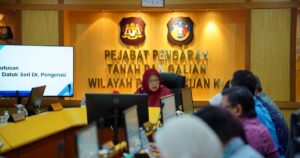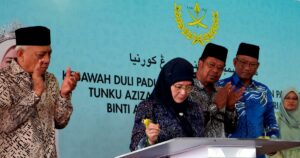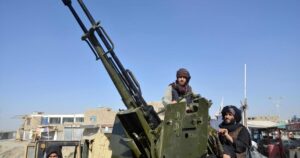KUALA LUMPUR:The electoral formula that Barisan Nasional (BN) should concentrate on rural seats while Pakatan Harapan (PH) focuses on urban areas may sound practical, but it is not a foolproof strategy for the Sabah state election.
Universiti Malaya socio-political analyst Datuk Professor Dr Awang Azman Awang Pawi said while BN‘s deep-rooted grassroots networks and PH’s stronger traction among urban, younger and middle-class voters made the division of focus appear realistic, Sabah’s voting patterns were far more fluid compared to Peninsular Malaysia.
“Fundamentally, this division of focus appears realistic because it takes into account Sabah’s demographic reality.
“However, voters can easily shift support based on current issues, candidate personalities, and local sentiments.
“Thus, the formula is not foolproof,” he said when contacted.
He added that the BN–PH strategy carries both the potential to complement each other and the risk of creating friction, depending on how it is managed.
“If BN focuses on rural seats and PH on urban ones, both sides can avoid clashing and work together more effectively against Warisan and Perikatan Nasional (PN).
“But this only works if there is a clear seat-sharing deal and strong candidates.
“Problems may also arise in semi-urban or mixed seats, where support overlaps. Umno‘s rejection of Gabungan Rakyat Sabah (GRS) could also put PH in a difficult position, forcing it to choose between siding more with BN or with GRS,” he said.
On Sunday, Umno Supreme Council member Datuk Seri Ahmad Maslan announced that BN is expected to dominate rural seats while PH will take charge of urban constituencies under a seat-sharing agreement finalised for the upcoming Sabah state election.
Previously, BN chairman Datuk Seri Dr Ahmad Zahid Hamidi said the coalition’s pact with PH for the upcoming Sabah election was final, but that they remained open to cooperation with other Sabah-based parties or coalitions.
Zahid also said that while the cooperation between PH and GRS was a mutual agreement between the two coalitions, the partnership between BN and PH was now officially confirmed.
Commenting further, Awang Azman said BN’s refusal to work with GRS may strengthen PH’s position as the balancing force, but it could also weaken the unity government if not managed carefully.
He added that the refusal could indirectly strengthen GRS’s reliance on PH, positioning the coalition as the “bridge” to ensure state–federal stability.
“However, this may also open BN to accuse PH of betraying its interests, which could strain relations within the unity government.
“Whether this strategy succeeds or not depends on seat negotiations, candidate discipline, and the ability to maintain a shared narrative,” he said, adding that if the strategy fails, BN and PH may end up weakening themselves and opening the door for Warisan or PN to rise.
© New Straits Times Press (M) Bhd






